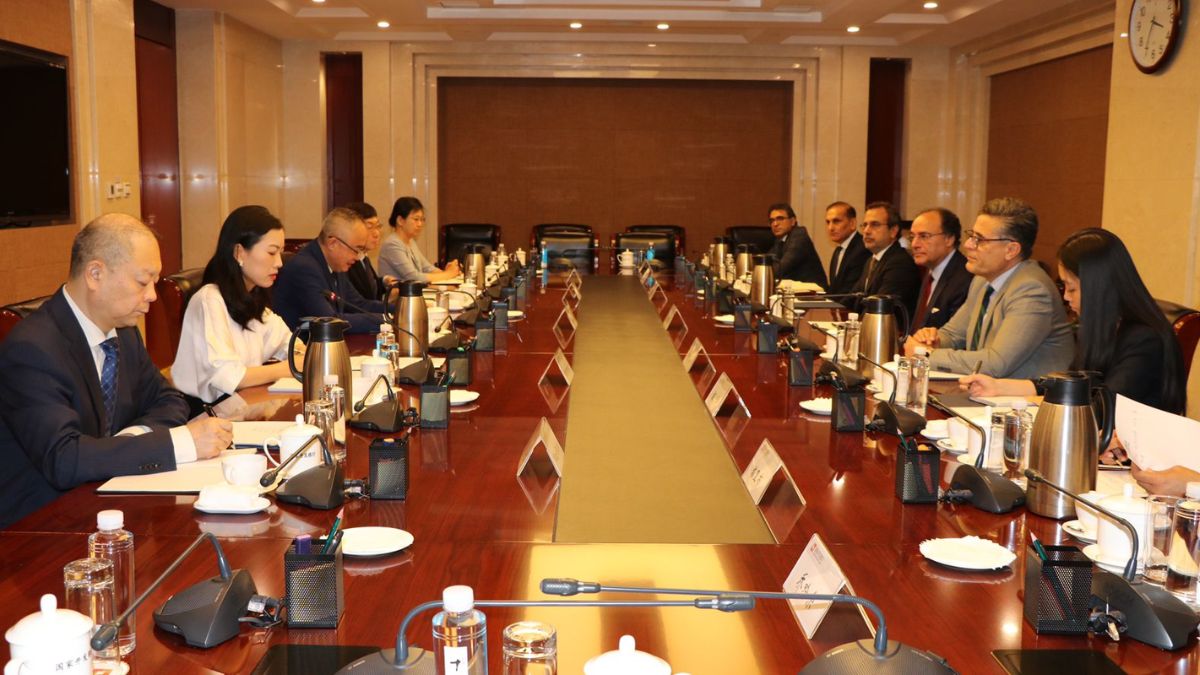
PAKISTAN SEEKS $300 MILLION PANDA BONDS INVESTMENT FROM CHINA TO STEM ECONOMIC CRISIS
With an aim to improve the financial stability of a cash-strapped country which is grappling with several other challenges such as high inflation and declining forex reserves, Pakistan has sought cooperation from Chinese institutional investors to launch Panda Bonds to raise between $250 million and $300 million initially.
Also Watch: Why China Has Rejected Pakistan's Proposals to Expand BRI | Vantage with Palki Sharma
Federal Minister for Finance and Revenue Muhammad Aurangzeb discussed the plan with the Governor of the People’s Bank of China (PBoC) Pan Gongsheng during a meeting in Beijing, covering a wide range of economic issues on Friday.
Also Read: Vantage | How pandas became a part of Chinese diplomacy
What are Panda Bonds?
Panda Bonds are a type of bond issued in China by foreign entities, denominated in renminbi, and targeted at Chinese investors. They serve as a platform for foreign countries and companies to raise capital in China's domestic market. Unlike Dim Sum Bonds, which are also renminbi-denominated but issued in Hong Kong for foreign investors, Panda Bonds are specifically sold in China and subject to domestic regulations.
Pakistan aims to tap into this market by issuing Panda Bonds, thereby diversifying its funding sources and bolstering its foreign exchange reserves through Chinese investment.
Muhammad Aurangzeb, a former banker from JPMorgan Chase & Co., was appointed finance minister by Prime Minister Shehbaz Sharif in March following a contentious election.
Aurangzeb assumes office at a time of record economic pessimism in Pakistan, which is grappling with the highest inflation rate in Asia at over 20% and faces $24 billion in external debt payments in the fiscal year starting July, three times its foreign-exchange reserves.
A former banker from JPMorgan Chase & Co., Aurangzeb, 59, was picked as finance minister by Prime Minister Shehbaz Sharif in March after a contentious election.
He took office at a time when economic pessimism in the country is at a record high and the government is trying to avoid defaulting on its debt. Pakistan has the highest inflation rate in Asia at more than 20% and faces $24 billion of external debt payments in the fiscal year starting July, three times its foreign-exchange reserves.
Also Read: Madhya Pradesh labourer digs $100,000 diamond from govt land. Can he keep it?
Earlier in March this year, addressing the Special Investment and Facilitation Council's (SIFC) apex committee, Aurangzeb said that the government would have to work towards a medium-term programme which would have a duration of two-to-three years. "And during those years, the government will have to undertake deep-rooted structural reforms," he added.
2024-07-27T06:58:55Z dg43tfdfdgfd